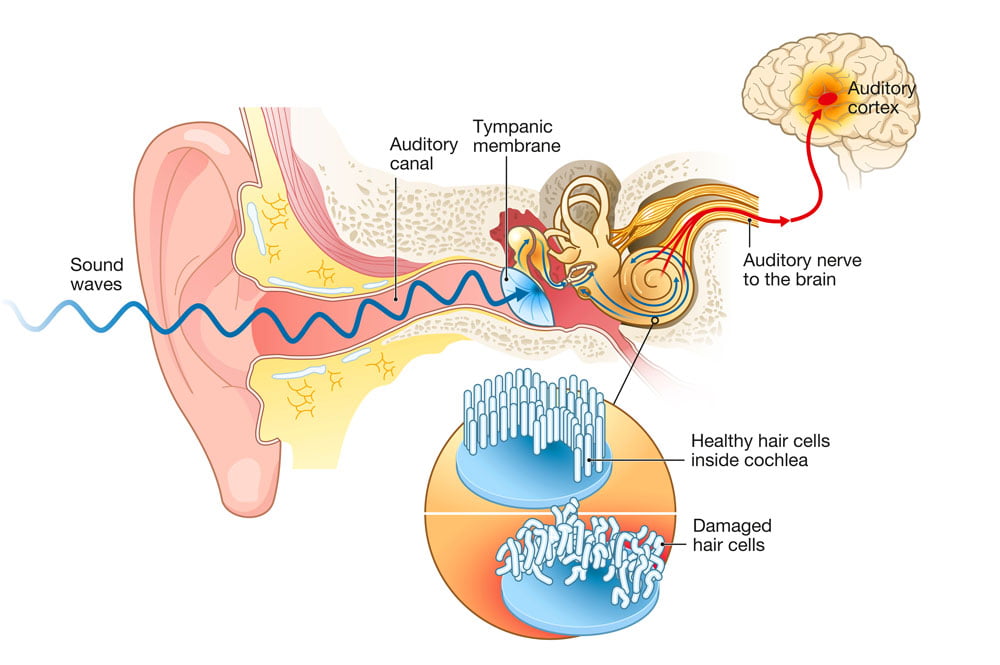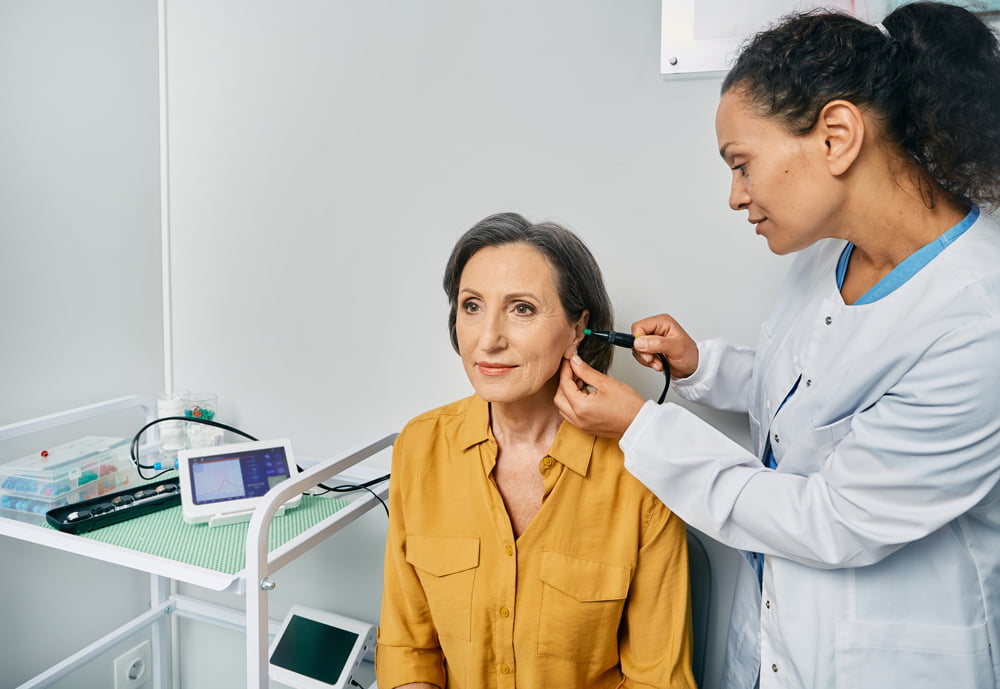Diabetes is a chronic condition that affects millions of people worldwide. While most people are aware of the potential complications of diabetes, such as heart disease and neuropathy, one lesser-known complication is hearing loss. According to research, people with diabetes are at a higher risk for hearing loss than those without the condition. In fact, some studies suggest that the risk of hearing loss in people with diabetes can be twice as high as in the general population.
Why Are People With Diabetes at Higher Risk for Hearing Loss?
There are several possible reasons why people with diabetes may be at a higher risk for hearing loss. One factor is high blood sugar levels, which can damage blood vessels and nerves throughout the body, including those in the ears. This damage can reduce blood flow and oxygen supply to the hair cells in the inner ear, which are responsible for detecting sound and transmitting signals to the brain. Over time, this can lead to hearing loss.
Another factor is inflammation, which is a common feature of diabetes. Chronic inflammation can damage cells and tissues in the body, including those in the ear. In addition, some research suggests that diabetes may affect the function of the nerves that transmit sound signals from the inner ear to the brain, leading to hearing problems.
Finally, exposure to loud noises can also contribute to hearing loss. Many people with diabetes already have nerve damage, and excessive sound levels can further damage the nerves responsible for hearing.

Overall, the relationship between diabetes and hearing loss is complex and not fully understood. However, research indicates that people with diabetes are at a higher risk for developing auditory issues and should be aware of this potential complication. By taking steps to manage their blood sugar levels, avoiding exposure to loud noise, and getting regular hearing tests, diabetics can help reduce their risk of hearing loss and maintain good hearing health.
Prevention and Management of Hearing Loss in People with Diabetes
Preventing and managing hearing loss in those living with diabetes involves several strategies that can help protect the ears from damage and preserve hearing. Here are some tips:
- Control your blood sugar levels: High blood sugar levels can damage the blood vessels and nerves in the ears, leading to hearing loss. By managing your blood sugar levels through medication, diet, and exercise, you can reduce your risk of hearing loss and other complications.
- Protect your ears from loud noise: Exposure to loud noise can cause hearing loss, especially if you already have nerve damage. To protect your ears, avoid loud noise when possible and wear earplugs or earmuffs in noisy environments.
- Take care of your overall health: Maintaining good overall health can also help prevent hearing loss. This includes getting regular exercise, eating a healthy diet, and avoiding smoking and excessive alcohol consumption.
- Get regular hearing tests: Regular hearing tests are essential for those suffering from diabetes to monitor their hearing and detect any changes or problems early. Your healthcare provider can recommend how often you should get your hearing tested based on your individual needs.

The Importance of Regular Hearing Tests
Regular hearing tests are crucial for individuals with diabetes to monitor their hearing health and detect any changes or problems early. Here are some reasons why hearing tests are so important:
- Early detection of hearing loss: Hearing loss often develops gradually, and people may not be aware of the extent of their hearing loss until it has progressed significantly. Regular hearing tests can help detect hearing loss early, allowing for prompt treatment and management.
- Monitoring changes in hearing: Hearing tests can also help monitor any changes in hearing over time, even if there are no apparent symptoms. This can be especially important for people at a higher risk for hearing loss.
- Better communication and quality of life: Good hearing is essential for effective communication and social interaction. Regular hearing tests can help ensure people can communicate effectively and participate fully in their daily activities and social life.
- Prevention of cognitive decline: Recent studies have suggested a link between hearing loss and cognitive decline in older adults. By detecting and treating hearing loss early, people with diabetes may be able to reduce their risk of cognitive decline and maintain good brain health.

Conclusion
Hearing loss is a common complication of diabetes that can significantly impact a person’s quality of life. People with this condition should be aware of the risk factors and of the prevention strategies available. By staying proactive about their hearing health and working with their healthcare providers, people with diabetes can maintain good hearing for years to come.
At Hear4U, we understand the importance of maintaining good hearing health. Our expert professionals are dedicated to providing high-quality services to our clients, including regular tests and personalised treatment options. If you have any concerns about your aural health, or would like to book a complimentary hearing test, we encourage you to get in touch with us today.






